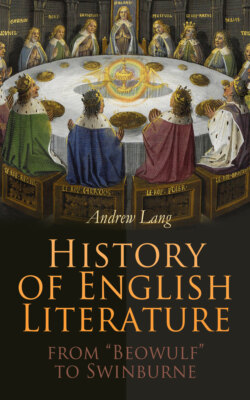Читать книгу History of English Literature from "Beowulf" to Swinburne - Andrew Lang, Robert Kirk - Страница 38
На сайте Литреса книга снята с продажи.
The Owl and the Nightingale.
Оглавлениеin rhyming eight-syllable couplets, seems to have been written about 1250 (?). The theme is a debate, in the fashion of French poetry, between the owl and the nightingale, as to the comparative merit of their songs. The nightingale, deserting her art, rather feebly asserts the moral influence of her own music, and attacks the owl in a very personal strain of invective, reflecting on his want of good looks, and on his taste in food. We are far indeed from Keats's "Ode to the Nightingale", "If you are so great a teacher," replied the owl, "why do you not sing to men in Ireland, Norway, and Galloway?" La Fontaine might have made a witty poem on the dispute of the owl and the nightingale, but the poet was not a wit, and made a poor use of his opportunities. He is supposed, but not with certainty, to have been Nicholas of Guildford, who is credited with being neglected by the Bishop in the distribution of patronage.
The owl quotes the "Proverbs of King Alfred," of which there is a thirteenth century collection in rhyme; there are also the "Proverbs of Hendyng": the latter in stanzas of six lines each, the first two rhyming with each other, as do the last two, while the third line rhymes with the sixth: a very popular jingle.
